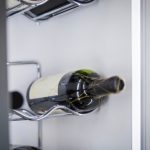How Winery Chillers Ensure the Perfect Temperature for Your Wine: A Guide to Choosing the Right System
 How Winery Chillers Ensure the Perfect Temperature for Your Wine: A Guide to Choosing the Right System
How Winery Chillers Ensure the Perfect Temperature for Your Wine: A Guide to Choosing the Right System
As a winery owner, you know how important it is to maintain the quality of your wine. The temperature at which your wine is stored and aged can significantly impact its taste, aroma, and complexity. This is precisely why investing in winery chillers is crucial.
Winery chillers are specifically designed to maintain the perfect temperature for wine storage and aging. They come in different sizes and styles, and choosing the right one can be challenging. This guide will help you understand the importance of winery chillers and how to choose the right system for your winery.
Why Do Winery Chillers Matter?
Wine is a delicate product that requires specific storage conditions to maintain its quality. The ideal temperature for wine storage and aging depends on the type of wine you produce. For example, red wine is typically stored between 55-65°F (12-18°C), while white wine is stored between 45-55°F (7-12°C).
Maintaining the perfect temperature is crucial because it affects the aging process and the development of the wine’s flavors and aromas. If the temperature is too high, the wine can spoil, and if it’s too low, it can slow down the aging process, affecting the wine’s quality.
Winery chillers ensure that the temperature of your wine is consistent and within the ideal range. They also help regulate humidity levels, which is crucial for the cork to stay moist and prevent oxidation.
Choosing the Right Winery Chiller
Choosing the right winery chiller depends on several factors, such as the size of your winery, the number of wine bottles you store, and your budget. Here are some things to consider when choosing the right winery chiller for your business:
1. Size
The size of the winery chiller will depend on the size of your winery and the number of wine bottles you store. It’s crucial to ensure that the chiller is large enough to accommodate your wine collection. If you plan on expanding your winery in the future, consider investing in a larger chiller to avoid having to buy a new one later.
2. Type of Chiller
There are two types of chillers: air-cooled and water-cooled. Air-cooled chillers use air to bring the temperature of the wine down, while water-cooled chillers use water. Air-cooled chillers are more common and generally less expensive, while water-cooled chillers are more energy-efficient and work well in areas with high temperatures.
3. Energy Efficiency
Energy efficiency is a crucial factor to consider when choosing a winery chiller. An energy-efficient chiller can help you save money on your energy bills and reduce your environmental impact. Look for chillers that have a high SEER (Seasonal Energy Efficiency Ratio) rating, which measures the cooling output of the chiller per unit of energy used.
4. Temperature Range
Different types of wine require different temperature ranges for storage and aging. Consider choosing a chiller that has an adjustable temperature range so that you can accommodate different types of wine. Some chillers come with dual temperature zones, allowing you to store both red and white wine at the same time.
5. Noise Level
If you have a small winery or tasting room, the noise level of the chiller may be a factor to consider. Some chillers can be noisy, while others are designed to operate quietly.
6. Maintenance
Regular maintenance is necessary to ensure that your chiller operates efficiently and lasts for a long time. Consider choosing a chiller that is easy to maintain and has readily available replacement parts.
7. Budget
Finally, consider your budget when choosing a winery chiller. Chillers can be expensive, and it’s important to choose one that fits within your budget. However, keep in mind that investing in a high-quality chiller will pay off in the long run by ensuring the quality of your wine and minimizing the risk of spoilage.
Final Thoughts
Winery chillers are essential for maintaining the quality of your wine. By ensuring the perfect temperature and humidity levels, they help preserve the wine’s flavor, aroma, and complexity. When choosing a chiller, consider factors such as size, type of chiller (air-cooled or water-cooled), energy efficiency, temperature range, noise level, maintenance, and budget. Investing in a high-quality winery chiller will pay off in the long run and ensure that your wine is of the highest quality.
